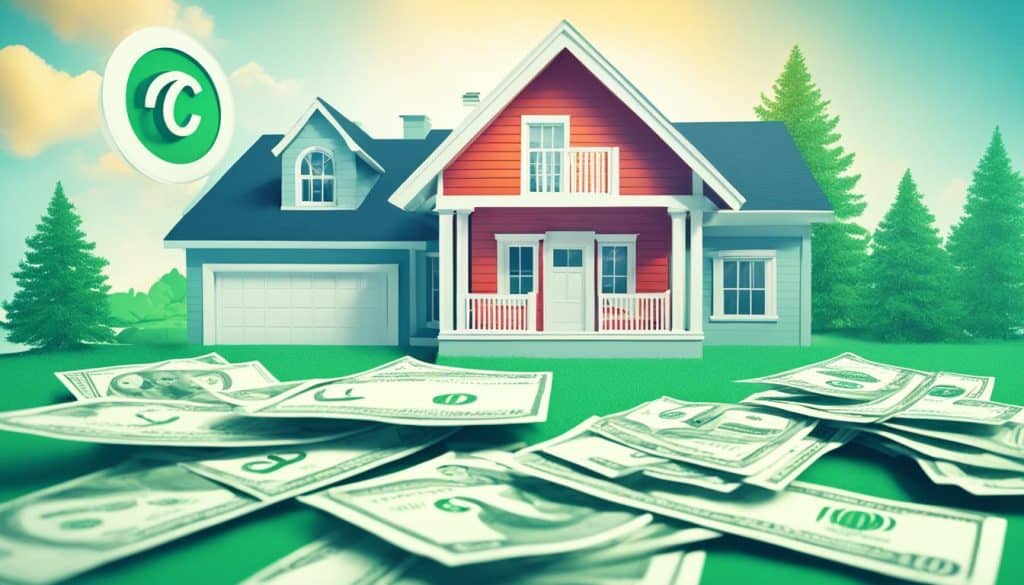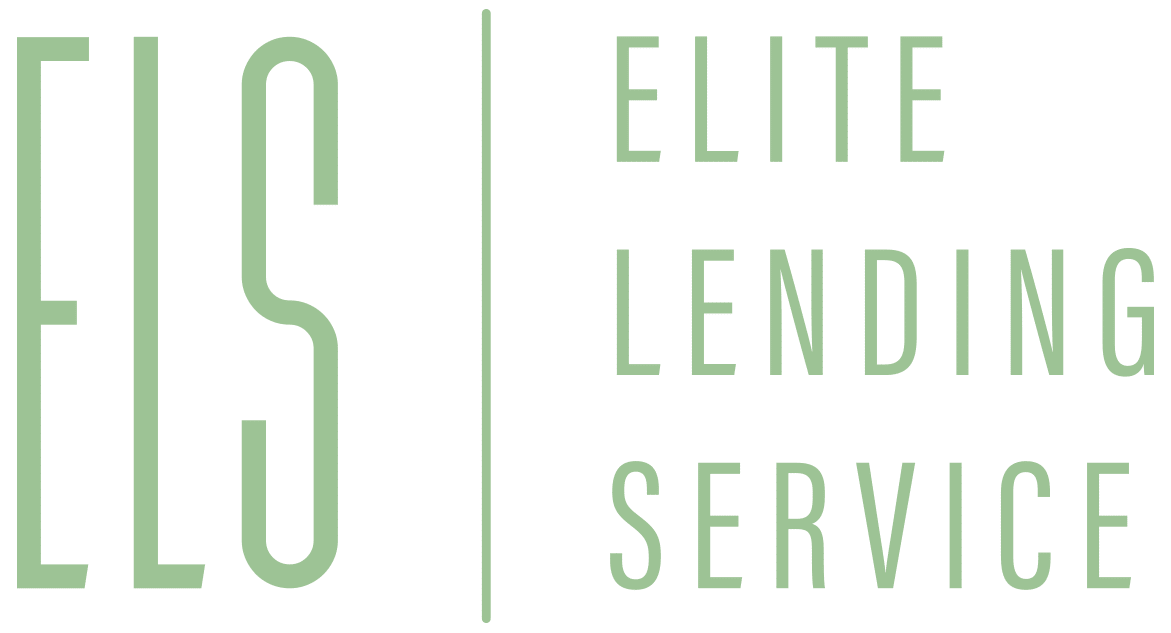Table of Contents
Ever thought about how a small percentage can change your life as a homeowner? What are the current home loan interest rates are key. They affect how affordable your new home is and your financial plans. As of February 5, 2025, the 30-year fixed mortgage rate is 6.95%. The 15-year refinance rate is about 6.23%.
These rates change due to inflation and the Federal Reserve’s actions. It’s important for buyers to watch these rates. This helps them make smart choices about their mortgage.
Key Takeaways
- The current average 30-year fixed mortgage interest rate is 6.95%.
- Recent trends indicate a decrease in home loan rates, providing opportunities for savings.
- Understanding the impact of credit scores and down payments is key to better rates.
- Adjustable-rate mortgages (ARMs) may have lower initial rates but come with risks of future changes.
- Comparing offers from different lenders is beneficial for finding the best mortgage.
Understanding Home Loan Interest Rates
Home loan interest rates are key when buying a home. They show the cost of borrowing money to buy a home, as an annual percentage. Knowing these rates is vital because they affect your monthly payments and the loan’s total cost.
Definition of Home Loan Interest Rates
Home loan interest rates are the fees lenders charge for home funds. For example, a $200,000 mortgage at 6.5% for 30 years means a monthly payment of about $1,264. The first payment is mostly interest, with a bit going to the principal.
Lenders usually finance 80% or more of the home’s price. So, understanding interest rates is essential for buyers.
Importance of Interest Rates in Home Buying
Interest rates are very important when buying a home. Lower rates mean smaller monthly payments, making homes more affordable. In 2024, mortgage rates were around 6.72% on average.
Changes in rates can greatly impact your finances. Borrowers with high credit scores get the best rates. Those with lower scores pay more and have fewer options. This shows why it’s important to stay informed and look for the best loan terms.
Current Trends in Home Loan Interest Rates
The world of home loan interest rates is changing in 2023. These rates are influenced by many economic factors and market needs. By late January 2025, the average 30-year fixed-rate mortgage (FRM) is 6.95%. This is a small drop from earlier months.
The average 15-year FRM rate is 6.12%. Adjustable-rate mortgages (ARM) are also seeing rate drops. These changes show a trend of rates moving down.
Overview of 2023 Trends
This year, mortgage rates have seen some ups and downs but mostly stability. The 30-year FRM rate went from 6.91% at the start of January to 6.95% by the end. This suggests a slight adjustment in the market.
A year ago, the average 30-year FRM rate was 6.84%. This shows rates have slowly decreased. Experts believe rates will keep adjusting as the housing market responds to economic changes.
Impacts of Economic Factors on Rates
Economic signs are key in setting mortgage rates. Job growth, inflation, and the Federal Reserve’s actions are very important. High inflation makes lenders more careful, leading to a complex risk situation.
The 10-year Treasury note rate, now at 4.54%, also affects rates. Lenders’ risk premium, between 1.5% and 3.0%, shows the uncertainty in lending today. This premium reflects the risk of borrowers defaulting on loans.

Types of Home Loan Interest Rates
When looking at home loans, knowing about interest rates is key. You usually choose between fixed and adjustable rates. Each has its own benefits, fitting different financial needs and wants.
Fixed vs. Adjustable Rates
Fixed and adjustable rates are the main types of home loan interest rates. Fixed rates stay the same for the whole loan, making payments steady. This helps with budgeting over time.
On the other hand, adjustable rates start low, which can save money upfront. But, they can change with the market, possibly raising costs later.
Short-term vs. Long-term Rates
Short-term and long-term rates also play a big role. Short-term loans, like 10 or 15-year mortgages, have lower rates but higher monthly payments. Long-term loans spread out payments, making them easier to manage but costing more in interest.
Choosing the right term is about finding a balance. It’s between paying less now and saving more in the long run.
How to Find Current Interest Rates
Finding the right mortgage rate is key for homebuyers. To get current interest rates, there are several ways. Online tools and financial websites offer the latest rates from different lenders.
Platforms like Bankrate are great resources. They collect rates and give advice based on your needs.
Resources for Homebuyers
Homebuyers should look at many sources for interest rates. Websites that show mortgage data give a full picture of rates. They consider things like credit scores and loan amounts.
Checking these sites often helps buyers keep up with rate changes. This knowledge helps them understand mortgage costs and find good deals.
Local mortgage brokers can make buying a home better. They know the local market well and offer advice for your situation. They can find you competitive rates and loans that fit your needs.
Talking to a broker can help you make a smart choice. They guide you through the mortgage process.
Factors Influencing Home Loan Rates
Understanding what affects home loan rates is key for borrowers. Many factors influence the interest rates lenders offer. These factors can make a big difference in how affordable a loan is.
Credit Score Impact
A borrower’s credit score greatly affects their interest rates. Higher scores mean lower rates. Lenders use certain score ranges to decide on rates.
Borrowers with scores over 740 often get the best rates. Scores below this can lead to higher interest. It’s important for future homeowners to keep their credit in good shape.
Loan Amount and Down Payment Effect
The size of the loan and the down payment also matter. Larger loans might have higher rates because they’re riskier for lenders. A 20% down payment can lower rates because it reduces the lender’s risk.
Elite Lending Service: Your Mortgage Broker
Finding the right mortgage broker is key in the home financing world. Elite Lending Service, led by Brad Bailey, is a top choice. With over 20 years of experience, they know the mortgage market inside out. This knowledge helps them find the best rates for their clients.
Background of Brad Bailey
Brad Bailey has spent his career understanding home loans. He knows what underwriters need and values personalized service. His approach helps clients find the best financial options through Elite Lending Service.
Why Choose Elite Lending Service?
Choosing Elite Lending Service means getting advice tailored just for you. They have a wide network of lenders, giving you access to different rates. This puts you in a strong position to get better loan terms.
Brad Bailey and his team use their industry connections to fight for their clients. This often leads to better loan terms than going it alone. Making the choice to work with an experienced broker like Elite Lending Service can save you money in the long run.
Benefits of Working with a Mortgage Broker
Working with a mortgage broker can make getting a loan easier. They help you through the complex mortgage application process. This is great for first-time homebuyers or those looking for the best rates.
Streamlined Process
Brokers make the loan process simpler. They do all the hard work, like finding the best rates and negotiating terms. This saves you time and stress, as you won’t have to deal with all the paperwork yourself.
Access to Multiple Lenders
Brokers can connect you with many lenders. They work with banks and other financial institutions that you might not know about. This means you have a better chance of finding a good loan and getting better terms.
Studies show you could save $5,000 to $10,000 by using a broker. This makes choosing a broker a smart financial move.

Locking in Your Interest Rate
Locking in your interest rate means getting a fixed rate for a set time before you finalize your mortgage. This ensures you keep the agreed rate, even if rates change. Lenders usually offer locks from 30 to 120 days, based on their rules.
Borrowers gain a lot from this, mainly when rates are likely to go up.
What It Means to Lock In
Locking in means you’re protecting yourself from rate increases. For example, locking in at 6.68% keeps you safe from rates going to 7% during the lock. This can save you a lot over the loan’s life.
For a $300,000 mortgage, a higher fixed rate means more interest paid. This shows why locking in is smart.
When to Consider Locking In Rates
It’s wise to lock in when rates are good or when you’re sure about your mortgage. Locking can cost 0.25% to 0.5% of the loan amount. You need to think about the upfront cost versus long-term savings.
Choosing to float can cost more if rates go up. So, knowing the market and your finances is key to deciding when to lock in.
The Application Process for Home Loans
Getting a home loan is a big step towards owning a home. Knowing how to start can make things easier. It usually begins with picking a lender and filling out an application. Make sure you have all the needed documents ready.
Initial Steps to Apply
The first steps are about getting your financial and property details ready. Lenders check your credit score, income, and debt. This part is key because it affects your mortgage rates and approval.
Documentation Required
You’ll need to show proof of income, like tax returns and W-2 forms. You’ll also need to share details about any debts. Plus, you’ll need to provide ID and information about the property you want to buy. Most lenders want a good credit score, usually around 620 for conventional loans.
Having these documents ready can speed up the process. It makes the journey to becoming a homeowner smoother.
Closing Costs and Interest Rates
When you buy a home, it’s key to know about closing costs. These costs include fees for things like appraisals and title insurance. They usually range from 2% to 5% of the home’s price. For a $300,000 home, you might pay between $6,000 and $18,000 in closing costs.
This amount is a big part of what you’ll need to pay upfront. It’s important to think about it when you’re planning to buy a home.
Understanding Closing Costs
Knowing about closing costs helps you understand what you’ll need to pay. These costs can affect how much you need to pay at the start. Different loans let sellers help with these costs in different ways.
For example, FHA and USDA loans let sellers contribute up to 6% of the price. VA loans allow up to 4%. Knowing this can help you figure out how to manage your costs.
How Closing Costs Affect Your Loan
Closing costs can change how much you need to borrow. This can affect the interest rate you’ll pay. Understanding this can help you make better financial choices.
Knowing about closing costs is important. It can affect your loan terms and your financial future.
Tips for Securing the Best Interest Rate
Getting the best interest rate takes strategy. It’s smart to compare offers from different lenders. This way, you can find the best terms. Remember, the Annual Percentage Rate (APR) includes fees and costs, so it’s important to compare that too.
Using online tools can make comparing easier. This helps you find lenders with competitive rates and terms.
Comparing Offers from Lenders
Comparing mortgage rates from various lenders is key. Each lender has its own criteria. So, showing an offer from one lender to another might get you better terms.
Lenders like NBKC and Rocket Mortgage have specific credit score needs. For example, NBKC requires a 620 score, and Rocket Mortgage needs a 580 score. It’s important to look at each offer carefully. Make sure you understand all the costs and conditions.
Strengthening Your Financial Profile
A good financial profile can get you a better interest rate. Aim for a credit score of 740 or higher for the best rates. To improve your score, pay off debts and keep your credit use low.
Keep your debt-to-income ratio under 36%. Making a bigger down payment can also improve your loan terms. A 3% to 3.5% down payment, as offered by NBKC and New American Funding, can lower your rate. It might also save you from private mortgage insurance costs.
Contact Elite Lending Service
If you need help with home loans, reaching out to Elite Lending Service is key. Their team offers expert advice to help you through the mortgage process. They make sure you understand your options well. To get personalized help or answers, it’s best to call or email them.
Phone Support Information
Call Elite Lending Service at (904) 263-0376. This number connects you with pros who know a lot about home financing. They can help you find the best rates for your loan.
Email Support Information
For written questions or detailed inquiries, email brad@elitelendingservice.com. Choosing to contact Elite Lending Service is a smart first step. It helps you make informed choices in your home buying journey.

